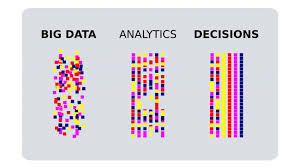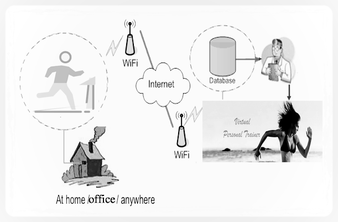The Healthcare Artificial Intelligence Market

Artificial intelligence (AI) in healthcare means utilizing AI or machine-learning algorithms to reproduce human analysis, understanding, and the interpretation of critical healthcare data. AI in healthcare has been applied to the areas of drug discovery, medical imaging & diagnosis, virtual assistance, and others.
The market size of Healthcare AI was above USD 1.7 b in 2019 and was estimated to grow at 43.7% CAGR during 2020 - 2026. It is expected that AI advancements in clinical research and personalized digital assistance will create growth opportunities for AI technology in the future. Thus, the application of AI in healthcare is likely to drive market growth in the upcoming years.

The North American healthcare AI market accounted for 51.2% of revenue share in 2019. Several government initiatives and funding in North America are currently encouraging the market growth of healthcare AI. Increased funding for big data analytics is fundamental for improving healthcare AI in this region of the world. Also, AI has started transforming healthcare by empowering big data analytics aiming to provide better healthcare services in the U.S.
The impact of Covid-19
Opposite to what has happened in other industries, the COVID-19 pandemic has had a positive impact on the healthcare AI market due to growing awareness and adoption of e-Health technologies. Healthcare AI has shown to be a widely used innovative technology during this COVID-19 pandemic and, rather than a temporary trend, it looks like healthcare AI is here to stay.
The cost of AI
A Healthcare AI setup requires huge investments since the technologies involved are very complex, making it highly expensive. Its maintenance and potential repairs are also huge. Furthermore, high software costs are expected, as this software typically needs to be frequently updated to cope with increasing data over time. Thus, high initial capital investment is one of the major issues impeding the broad adoption of AI in healthcare.
The e-WeightLoss project
The weight loss formula is not really a mystery: the number of calories we burn (metabolism & exercise) must be higher than the number of calories we eat from food (so-called "Energy Balance"). However, though it might seem easy to do, anyone who has tried it may know well that the reality is not that simple. Motivating people to establish healthy lifestyle habits and make significant changes is still not a highly explored science. However, a recently published scientific study by Virtual Personal Trainer shows how motivational strategies can be easily implemented into health programs resulting in a very promising therapeutic, prone to be practiced at a large scale.
Making health a lifestyle
Social mechanisms are key for incentivizing changes. Social media has been shown to encourage teamwork, competition, and accountability. For example, a group of co-workers or friends can help to encourage each other to work out more frequently. Social media allows influencing a high number of people. Studies show that social media can greatly improve health outcomes. Thus, it is believed that social networking can help us to achieve things that maybe we could not if we tried on our own. The way we or others think can affect health behavior.
Mobile / wearable technology and health
Rewarding and incentivization can play a critical role in motivating people. Both mobile and wearable technology is playing a major role in reaching out to people and keeping us on track with our personal habits. Knowing about different types of behavior is crucial for designing and developing this technology, as a kind of tool for persuasion. To be successful in making lifestyle changes, we need to get involved, and using these technologies offers great opportunities.
Blockchain technology in healthcare
Blockchain technology is still in an early stage of development and has not yet been widely adopted in healthcare. However, the sharing of healthcare data in a more secure way is certainly closer than we think, so it is expected to be widely implemented by healthcare authorities, consulting, and software companies sooner rather than later. While today critical gaps exist in using this modern technology, addressing these gaps will be fundamental to drive blockchain adoption and receiving value from this very promising technology.
OPEN CALL TO e-Health & BIG DATA PARTNERSHIPS and INVESTORS
The idea that there is a universal weight loss formula is biologically impossible. A good weight loss plan needs to be personalized and ideally integrating all the above levels: biological (energy balance), physical (exercise), behavioral (motivation and rewarding), and technological (mobile/wearable/blockchain) .… And this is where AI comes in.
Most studies so far have been observational, relying on food logs, or simply patients' memory, which tends to be very inaccurate. To understand health dynamics, considering individual variability, and implementing personalized treatments, we should focus on devising predictive methods that monitor individuals' health responses to food. Studies have been faulty because of the difficulty to obtain such accurate and large amounts of data, preventing researchers from using machine learning and AI technologies.
My previous experience has shown that weight management (data) can be highly predictive. As such, these data can be easily stored, analyzed, and applied to machine learning techniques to provide almost complete automation of weight management (weight loss/gain/maintenance). Virtual Personal Trainer is intending to create a "Secure Integrated e-Health, BIG DATA, Machine Learning and AI Platform" that eventually will run fully automatic and that can be used as a template prototype platform for any other e-health project.
PARTNERSHIP / INVESTMENT PLAN
- Modernize website & mobile apps
- Unify currently released apps into one single app
- Sensor development
- Collecting real-time sensor data
- Apply BIG DATA & machine learning techniques
- Data security and protection (blockchain)
- Marketing Plan
- Apply for €1-2M funding to public Institutions such as EU_H2020 (expected payback ~2years)

- Virtual Personal Trainer's first e-Health AI WEIGHT LOSS Platform (e-WeightLoss)
With machine learning and AI, we could all have the first personalized virtual weight loss coach in a couple of years. Personalized AI weight loss plans could be the beginning of a very exciting new era.
(Latest launch) New Free Android app: enhanced Body Mass Index (eBMI)
Download our **NEW app** eBMI
Boost your Health with Our FREE eBMI Tool!
Key Features:
- Language & Measurement (Metric/Imperial) selection.
- BMI calculator: Instantly determine your Body Mass Index.
- ML Model BMI Prediction: Unlock insights into your current BMI and health status through advanced ML predictive analysis.
- ML Models comparison: Explore the agreement or disagreement between state-of-the-art ML models and the traditional BMI formula.
- Discover Your Healthy Weight Area (HWA): Identify your unique distance to your healthiest BMI range, the one with the lowest Mortality Risk (optimal health).
- Scientifically proven.
Related articles
In recent years, the integration of artificial intelligence (AI) and Machine Learning (ML) into healthcare has sparked a revolution, bringing about unprecedented advancements and innovations. One of the most impactful areas where AI/ML has made its mark is in virtual personal training, offering a wealth of opportunities for both healthcare professionals and patients alike.
Interested in investing in Virtual Personal Trainer e-health & BIG DATA?

Please help support
Virtual Personal Trainer







